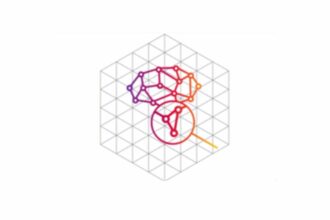Author, Francis Chuah Chin Wei
Hovering across the web seeking ideas for my contribution to Marketing In Asia magazine, I came across some novel terms (probably not) such as ‘customerisation’, ‘glocalisation’ which show sign that global marketers are beginning to penetrate into the “inner-side” of their market share, trying to understand how they can “localised” and “customised” their product according to the specific regional and cultural needs and preference of their customers across different continent.
In order to ensure that these ‘customerisation’ and ‘glocalisation’ strategy works effectively, customer engagement has a role to play. Academically, customer engagement is defined as “the level of customer’s cognitive, emotional and behavioural investment in a specific brand interaction”. From a practical point of view, customer engagement was commonly understood as “repeated interaction between a customer and a brand that strengthen the emotional, psychological or physical investment a customer has in the brand”
While a plethora of strategy on customer engagement has been crafted, little was discussing the psychological roots that build upon customer engagement. In another word, marketers are very much capable on building strategy to maintain or to enhance customer engagement but might be clueless of how or why a certain customer would actively engage in a brand while the others don’t.
Rendering some thoughts and knowledge from psychology, I would like to share a piece of my mind on how to develop or to sustain customer engagement towards your brand, from a psychological perspective.
Three psychological ingredients are necessary for developing customer engagement. To some, these terms might seem jargon, but I will do some brief explanatory so to enlighten fellow readers.
Psychological Meaningfulness. The first step to inviting the customer to be engaged with you or your brand is through psychological meaningfulness. Brands that are capable to do beyond delivering product/service satisfaction, such as making an impact of their customer lives, is said to have successfully developed psychological meaningfulness in their customer’s live, paving way for possible customer engagement. A few possible examples of brands that are capable of making psychological meaningfulness in the life of consumer includes Microsoft, Google, and Apple.
Psychological Safety. Apart from psychological meaningfulness, brands that look forward to an effective and successful customer engagement must be capable of developing psychological safety among their customer. Safety in a psychological sense denotes that the customer feels safe / having no fear to express their true feelings towards a brand that they are engaging with. Brands that are willing to listen and prioritize customer feedback and react promptly to customer complains/feedbacks/recommendations are often capable of developing psychological safety among their customer.
Psychological Availability. It refers to one’s belief that they can invest themselves truthfully (physically, cognitively, and psychologically) towards the brand that they would like to engage with. One solid example should be how Apple user demonstrating a high level of psychological availability whenever there is a new model of iPhone being launch such that they are willing to participate in a long queue, staying overnight outside the premium outlet just to wait for the new phone. Apple has somewhat successfully developed psychological availability in their customer.
This piece of manuscript shed some light on the possibility of developing and sustaining customer engagement from a psychology point of view. In line with the conceptualization of customer engagement from both academia and practice, it is no doubt that customer engagement is an investment of emotional, cognitive and behavioural energy of a consumer towards a brand, it is, therefore, best to decipher what constitute (making up) customer engagement at the very first place from the psychological perspectives.
Dr. Francis Chuah Chin Wei is the MBA Programme Director at OYAGSB. Follow him on ResearchGate.














